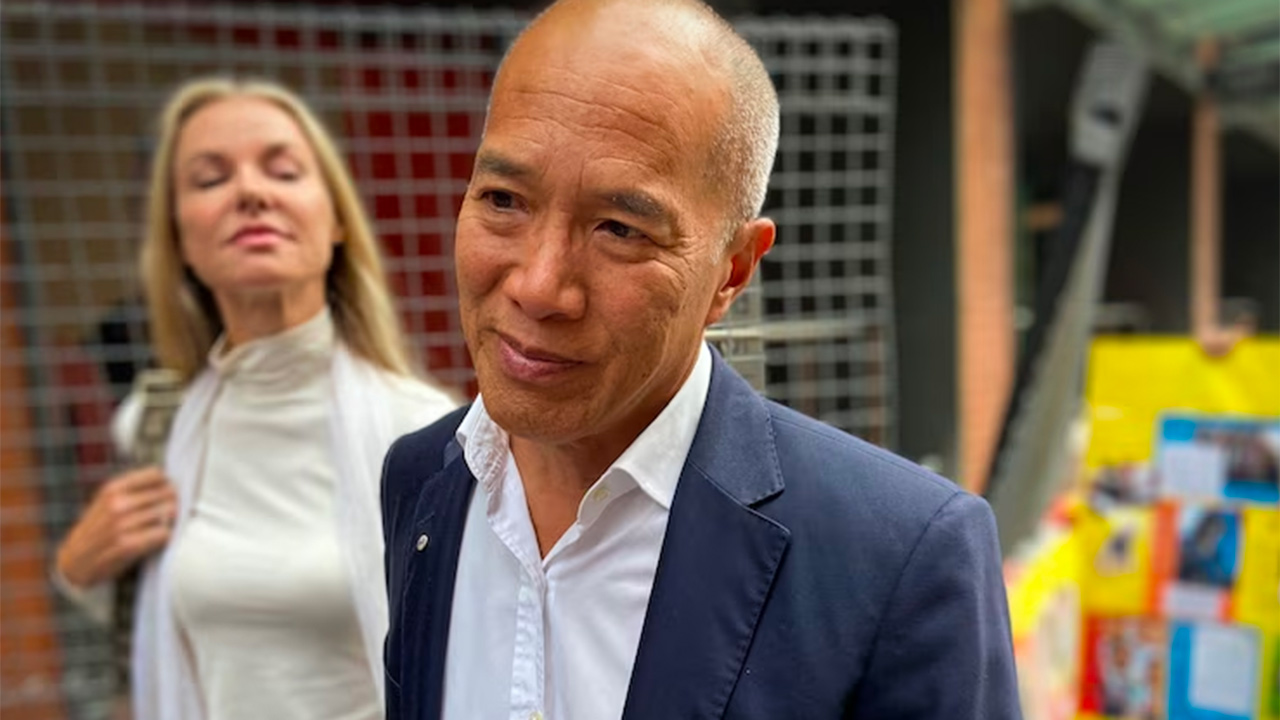Charlie Teo's great walk of support

Neurosurgeon Dr Charlie Teo has now accepted work in China following the imposed conditions on his practicing certificate after complaints from the families of two patients. Despite the restrictions, many patients still in need of his surgical skills are expressing disbelief over the situation.
In a message posted to social media, Dr Teo has urged his supporters to join him in solidarity for a walk across Sydney Harbour Bridge – and dozens have already committed to the walk, which will take place in September.
“Many have asked what you can do to show your support," wrote the embattled surgeon. "Well, I would be honoured if you would join me in solidarity on the Sydney Harbour Bridge.”
Patients are rallying their friends and family to walk with Dr Teo on September 17, in a message that emphasised that Dr Teo remains determined and will be present for the event after flying in from Spain.
The decision to work in China and other countries came after the Health Care Complaints Commission (HCCC) found Dr Teo guilty of "unsatisfactory professional conduct", a verdict he vehemently denies.
Dr Teo addressed those affected by brain cancer, acknowledging the severity of the disease and emphasising the importance of the Charlie Teo Foundation in offering hope and support to those affected.
Dr Teo affirmed that while he would be working in various countries, he still considers Australia his home. He expressed sadness over his recent experiences within the Australian medical system but remains motivated by the work he continues to do worldwide. The announcement of Dr Teo's decision to focus on China garnered hundreds of supportive comments from social media users, along with comments left on news articles.
Dr. Teo confirmed that he would soon be performing complicated brain stem surgeries in China, acknowledging that his future in Australia is likely over. As he told the The Saturday Telegraph: “I am not guilty of what I am accused of. I reject what they say I have done. They just don’t believe me, so why would I show remorse for something that I deny?”
“I could appeal, I think I would win. They wouldn’t be able to prove beyond a reasonable doubt the things they have accused me of because they are not true. But I’m not sure I have the strength to run an appeal. Furthermore, I don’t have the money to do so,” he said.
“And then the whole emotional turmoil.”
Dr Teo instead will focus on saving lives in countries that will allow him to. “I have just been granted privileges in China, in three different hospital,” he said. “The fact that I have been crucified over here didn’t appear to affect their decision, so I am going over there to check the facilities, make sure they are good. They just bought the latest MRI for me.”
Dr Teo said he was committing to a future in China “because they have committed to me” and would continue to do the occasional cases in Europe and parts of Southeast Asia that required his expertise.
He expressed disappointment but not surprise at the conditions placed on his practicing certificate following an investigation into two brain surgeries with adverse outcomes. Dr Teo categorically denied any failure to obtain proper consent or lacking empathy for his patients. He expressed his reluctance to appeal the decision due to the emotional turmoil and financial constraints associated with it. Instead, he will focus on saving lives in countries that permit his expertise.
Having recently been granted privileges in three hospitals in China, Dr Teo expressed his commitment to this new chapter in his career. He mentioned that the accusations against him would not hold up if challenged but admitted uncertainty regarding his ability to endure an appeal process.
Dr Teo's primary concern lies in ensuring quality facilities and patient care in China. While he plans to continue performing occasional cases in Europe and Southeast Asia, he lamented the fact that he can no longer assist patients in his home country.
Dr. Teo criticised the recent findings by the HCCC, stating that they send a negative message to doctors who offer contrary second opinions. He expressed concern that neurosurgeons across Australia may become reluctant to undertake risky surgeries, fearing media scrutiny and judgment from colleagues who lack the necessary expertise to treat complex tumour cases.
Dr Teo also revealed that he continues to receive regular calls from individuals suffering from rare brain tumours seeking his help, but he is forced to turn them away.
Image: Wikimedia
